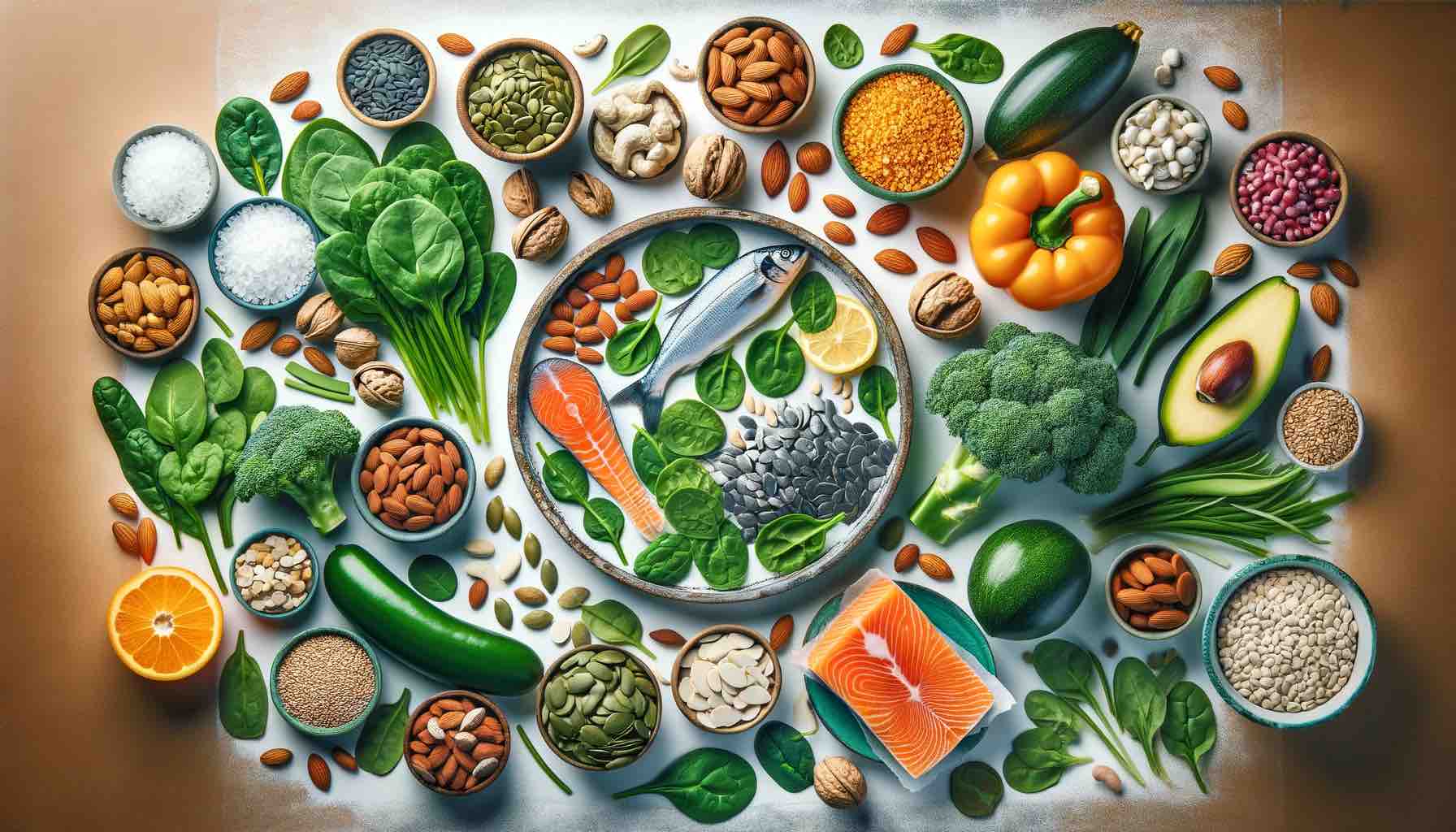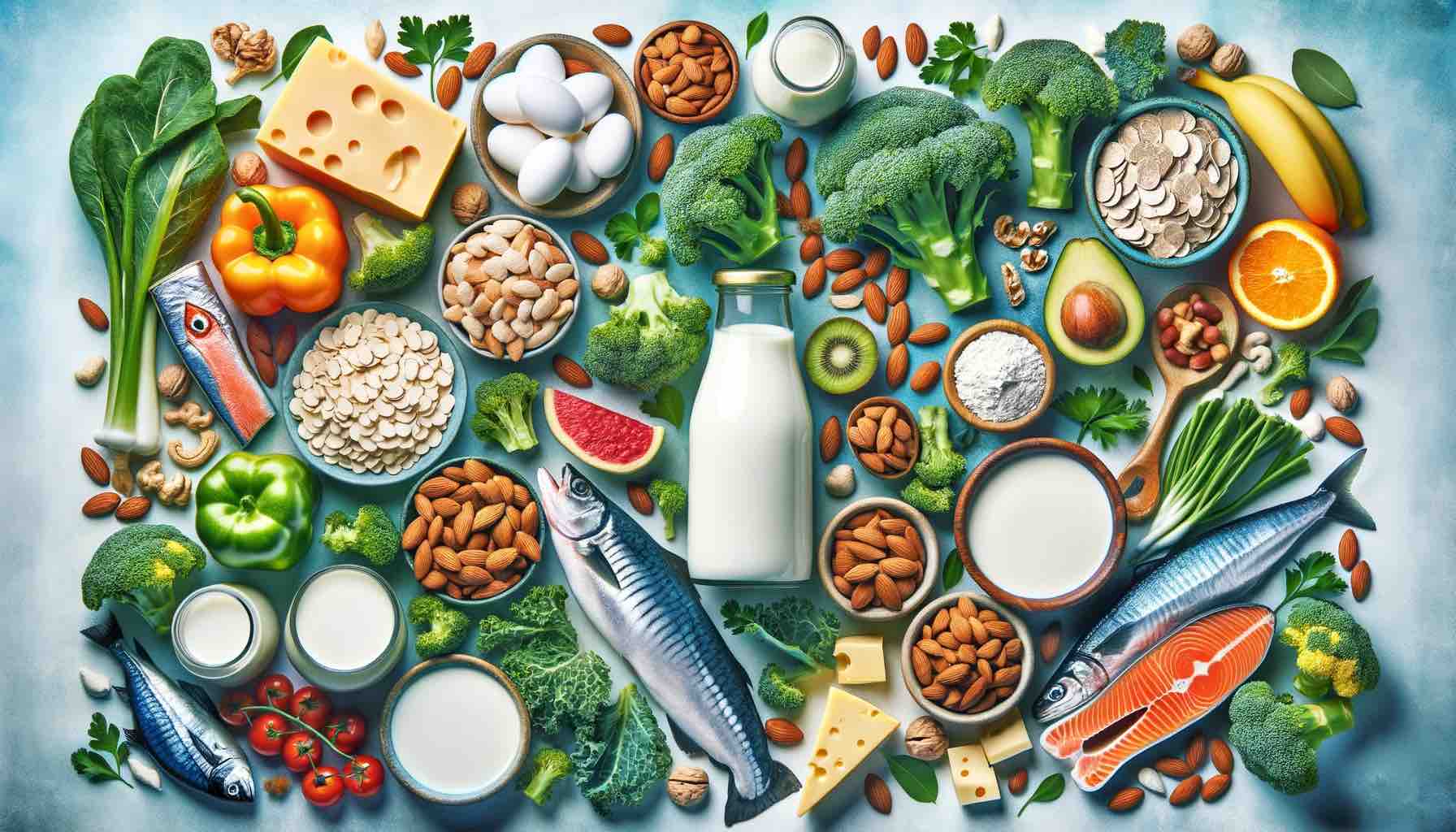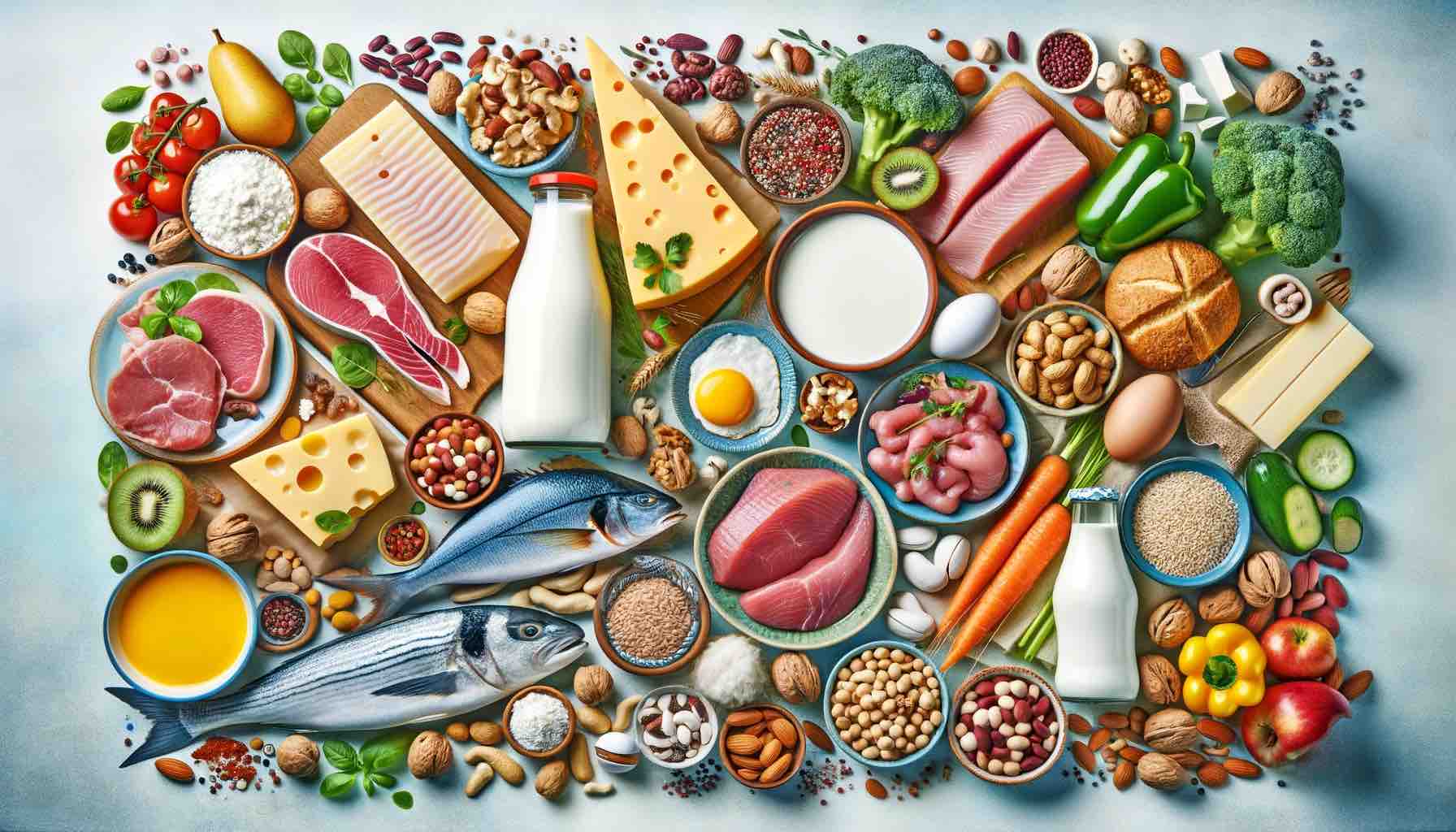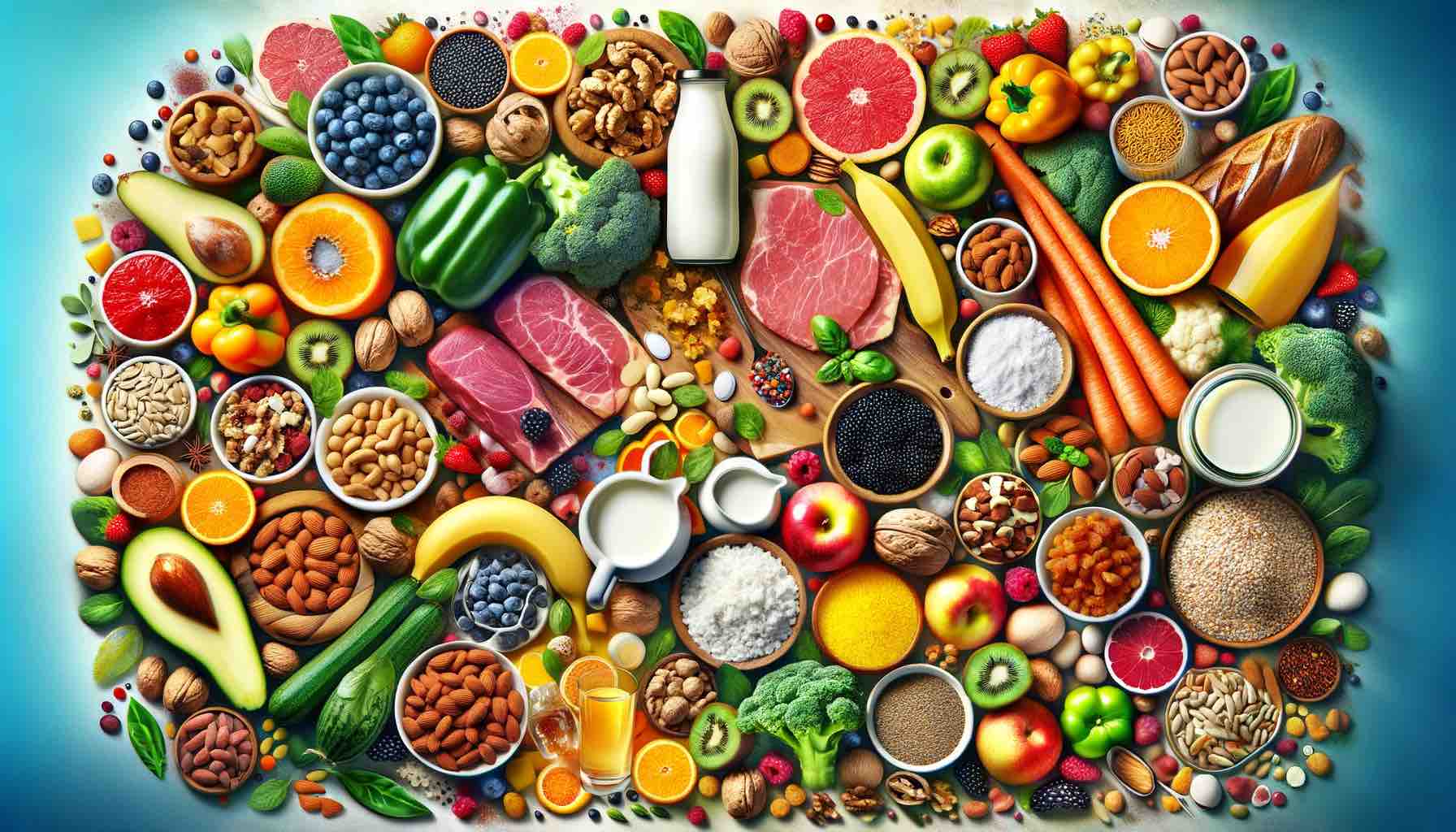
Introduction
Eosinophilic Esophagitis (EoE) is a chronic, allergen-driven condition affecting the esophagus, the tube connecting the mouth to the stomach. Characterized by a high number of eosinophils, a type of white blood cell, in the esophagus, EoE can lead to various gastrointestinal symptoms and complications. This blog post delves into the intricacies of EoE, emphasizing the pivotal role of diet in managing this condition and exploring effective treatment strategies.
Understanding Eosinophilic Esophagitis
What is Eosinophilic Esophagitis?
Eosinophilic Esophagitis, often abbreviated as EoE, is an immune-mediated condition. It’s marked by the accumulation of eosinophils in the esophagus, which isn’t normal for this part of the body. The presence of these cells can cause inflammation, leading to damage and dysfunction of the esophageal tissue.
Symptoms of EoE
The symptoms of EoE can vary widely, ranging from mild to severe, and can affect both children and adults. Common symptoms include:
- Difficulty Swallowing (Dysphagia): This is often the most noticeable symptom in adults.
- Food Impaction: Instances where food gets stuck in the esophagus.
- Chest Pain: Can be confused with heart conditions but is related to esophageal inflammation.
- Reflux-like Symptoms: Including heartburn and regurgitation, which are often resistant to standard reflux medications.
- In Children: Symptoms may include abdominal pain, vomiting, and failure to thrive (in severe cases).
Causes and Risk Factors
The exact cause of EoE is not fully understood, but it’s believed to be related to allergic hypersensitivity. Environmental allergens, certain foods, or a combination of both can trigger the condition. Genetics also play a role, as EoE is more common in families with a history of allergic diseases, such as asthma, eczema, and food allergies.
Link Between Eosinophils and Esophageal Inflammation
Eosinophils are part of the body’s immune response, typically involved in combating parasites and participating in allergic reactions. In EoE, these cells respond to an allergen by accumulating in the esophagus, leading to inflammation, tissue damage, and the symptoms associated with the condition.
Diagnosis of EoE
Diagnosing EoE involves a combination of symptom assessment, endoscopic evaluation, and tissue biopsy from the esophagus. The biopsy is crucial for confirming the presence of excessive eosinophils. It’s also essential to rule out other conditions that can mimic EoE, such as gastroesophageal reflux disease (GERD) or other forms of esophagitis.
In the following sections, we’ll explore the critical role of diet in managing EoE, including dietary triggers, elimination diets, and practical dietary strategies for living with this condition.
Dietary Management of EoE
Importance of Diet in Controlling EoE Symptoms
Diet plays a crucial role in the management of Eosinophilic Esophagitis. For many patients, specific foods act as triggers, causing an increase in eosinophils and subsequent inflammation in the esophagus. Identifying and eliminating these triggers can significantly reduce symptoms and improve esophageal health.
Common Dietary Triggers and Foods to Avoid
While triggers can vary from person to person, certain foods are commonly associated with EoE flare-ups. These include:
- Dairy products
- Eggs
- Wheat and gluten-containing grains
- Soy products
- Nuts
- Seafood and shellfish
It’s important to note that these are potential triggers, and not all individuals with EoE will be sensitive to all these foods.
The Role of Elimination Diets
Elimination diets are a cornerstone in managing EoE. These diets involve removing suspected trigger foods for a set period, followed by gradual reintroduction to identify specific allergens. Two common approaches are:
- Six-Food Elimination Diet: This diet removes the six most common allergens (milk, wheat, eggs, soy, nuts, and seafood) and is often the starting point in dietary management.
- Targeted Elimination Diet: Based on allergy testing results, specific foods are removed. This approach is more personalized and may be easier to follow.
Monitoring and Adjusting the Diet
Successful dietary management requires careful monitoring:
- Food Diary: Keeping a record of food intake and symptoms can help identify potential triggers.
- Regular Check-ups: Follow-up endoscopies and biopsies are essential to assess the effectiveness of the diet and make necessary adjustments.
- Working with Specialists: Dietitians and allergists can provide invaluable guidance in managing an elimination diet.
Specific Diets for EoE
Elemental Diet: What it is and How it Helps
An elemental diet, consisting of amino acid-based formulas, is sometimes recommended, especially in severe cases or when elimination diets fail. This diet provides nutrition without allergenic proteins, allowing the esophagus to heal. However, it can be challenging to maintain due to taste and the social aspects of eating.
Effectiveness of Two-Food and Six-Food Elimination Diets
The six-food elimination diet has shown significant success rates, with many patients experiencing symptom relief and decreased eosinophil counts. The two-food elimination diet, typically removing the top two allergens (milk and wheat), can also be effective and may be a less restrictive starting point.
Tailoring Diets to Individual Needs
Each person’s response to dietary changes can vary:
- Personal Allergen Profile: Dietary modifications should be based on individual allergen profiles and responses.
- Balanced Nutrition: It’s crucial to ensure nutritional adequacy, especially in children, when following restrictive diets.
In the next section, we will delve into practical tips and recipes for living with EoE, followed by a discussion on medical treatments and long-term management strategies.
Living with EoE: Practical Tips and Recipes
Tips for Meal Planning and Grocery Shopping with EoE
- Read Labels Carefully: Become familiar with reading food labels to identify potential allergens.
- Plan Ahead: Meal planning can help avoid last-minute choices that might not be EoE-friendly.
- Seek Alternatives: Look for allergen-free alternatives to common foods (e.g., dairy-free milks, gluten-free grains).
- Involve a Dietitian: A dietitian specialized in food allergies can provide personalized advice and meal ideas.
Easy and Safe Recipes for Individuals with EoE
- Allergen-Free Breakfast: Oatmeal made with water or a dairy-free milk substitute, topped with fresh fruits.
- Lunch Idea: Grilled chicken or fish with quinoa and steamed vegetables, seasoned with herbs and olive oil.
- Dinner Recipe: Stir-fried tofu with rice noodles and an array of colorful vegetables.
Strategies for Dining Out and Social Gatherings
- Communicate Needs: Inform the restaurant about your dietary restrictions in advance.
- Choose Wisely: Opt for places with allergy-friendly menus or simpler dishes where ingredients can be easily identified.
- Bring Safe Snacks: When attending social events, consider bringing your own food to ensure safety.
Beyond Diet – Treating EoE
Overview of Medical Treatments for EoE
While diet plays a crucial role in managing EoE, medical treatments are often necessary, especially in severe cases. Treatment options include:
- Topical Steroids: Such as fluticasone or budesonide, which are swallowed instead of inhaled to reduce esophageal inflammation.
- Proton Pump Inhibitors (PPIs): Used to manage acid reflux symptoms that can accompany EoE.
- Biologic Therapies: Newer treatments like monoclonal antibodies may be used in certain cases.
Role of Allergy Testing and Management in EoE
Allergy testing can be a valuable tool in identifying potential food triggers. Skin prick tests, blood tests for specific IgE antibodies, and atopy patch tests are commonly used. Based on the results, an allergist can help formulate a management plan.
Long-term Management Strategies and Lifestyle Adjustments
- Regular Monitoring: Regular follow-ups with a gastroenterologist are important to monitor the condition.
- Stress Management: Stress can exacerbate symptoms, so incorporating stress-reduction techniques can be beneficial.
- Stay Informed: Keeping up-to-date with the latest research and treatment options in EoE can empower patients in their healthcare journey.
Conclusion
EoE is a complex condition that requires a multifaceted approach to management, encompassing diet, lifestyle, and medical treatments. By understanding the intricacies of EoE and adopting tailored strategies, individuals can effectively manage their symptoms and maintain a good quality of life. Collaboration with healthcare professionals, including gastroenterologists, dietitians, and allergists, is key to developing a comprehensive and personalized management plan.
Explore More About Eosinophilic Esophagitis (EoE)
For a comprehensive exploration of EoE, consider reading our series of articles, each offering unique insights and practical advice:
- EoE Elimination Diet – Free PDF: Discover the essentials of an elimination diet tailored for EoE management, complete with a downloadable PDF guide for easy reference.
- EoE Diet and Treatment Strategies: Learn about effective dietary strategies and treatment options that can help manage EoE symptoms.
- EoE Symptoms, Treatment, and Diet: Gain a thorough understanding of the symptoms of EoE and how diet plays a crucial role in treatment.
- Symptoms of Eosinophilic Esophagitis (EoE): Delve into a detailed analysis of the symptoms of EoE, helping you to identify and understand the condition better.
- EoE and Elimination Diets: Explore the connection between EoE and elimination diets, offering insights into how dietary adjustments can alleviate symptoms.
Each article in our series offers unique perspectives and practical tips, ensuring you have a well-rounded understanding of Eosinophilic Esophagitis. Whether you’re looking for detailed dietary advice, symptom identification, or treatment strategies, our resources are here to guide you.
10 FAQs for the Blog Post
- What exactly is Eosinophilic Esophagitis (EoE), and how is it diagnosed?
- EoE is an immune-mediated condition where eosinophils accumulate in the esophagus, causing inflammation and symptoms like difficulty swallowing. Diagnosis typically involves endoscopic examination and biopsy to confirm eosinophil presence.
- Are there specific foods known to trigger EoE symptoms?
- Yes, common triggers include dairy, eggs, wheat, soy, nuts, and seafood. However, triggers can vary from person to person, so identifying individual sensitivities is crucial.
- How effective are elimination diets in managing EoE?
- Elimination diets, like the six-food elimination diet, are highly effective for many in identifying triggers and managing symptoms, with many patients experiencing significant symptom improvement.
- Can EoE be cured with diet alone?
- While diet plays a critical role in managing EoE and can lead to symptom remission, it’s not typically considered a cure. Ongoing dietary management and medical treatment may be necessary.
- What is an elemental diet, and when is it used for EoE?
- An elemental diet consists of amino acid-based formulas and is used in severe EoE cases or when elimination diets fail. It removes potential allergens from the diet, allowing the esophagus to heal.
- Are there any medical treatments for EoE besides dietary changes?
- Yes, treatments include topical steroids to reduce inflammation, proton pump inhibitors for reflux symptoms, and newer biologic therapies for more severe cases.
- How can I ensure balanced nutrition while on an elimination diet for EoE?
- Consulting with a dietitian is key to ensuring balanced nutrition. They can help create a diet plan that eliminates triggers while providing essential nutrients.
- What are some practical tips for eating out with EoE?
- When eating out, choose allergy-friendly restaurants, communicate dietary restrictions clearly, and consider safer dish options where ingredients are easily identifiable.
- Can EoE lead to other health complications if left untreated?
- If left untreated, EoE can lead to complications like esophageal strictures and food impactions. Therefore, proper management and regular monitoring are important.
- Is EoE a lifelong condition, or can it resolve over time?
- EoE is generally considered a chronic condition. While symptoms can be effectively managed, many individuals require long-term treatment and dietary adjustments.
Blog Tags for the Post
eosinophilic esophagitis, EoE diet, elimination diet, elemental diet, EoE symptoms, EoE treatment, allergic esophagitis, eosinophilia, esophageal inflammation, dietary management of EoE, food allergies, EoE in adults, EoE triggers, managing EoE













